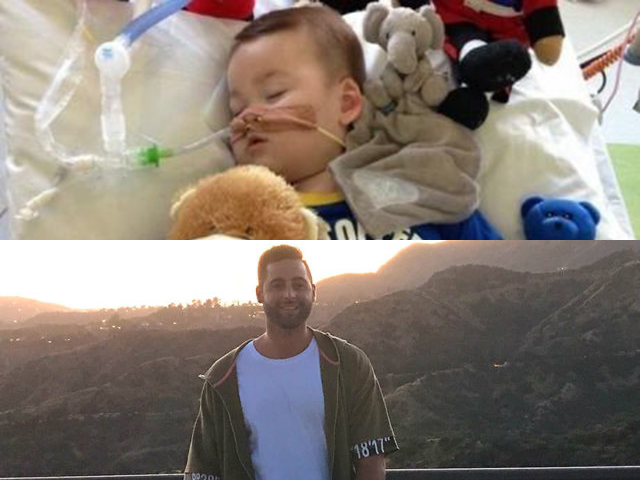Rivka Ouanounou admits to following the case of Baby Alfie in the U.K. closely. After all, there was more than a passing similarity to the situation she had recently experienced with her own son, Shalom Natanel Ouanounou.
Like Shalom Ouanounou, Alfie Evans spent his last months in a hospital – in his case, in Liverpool – hooked up to an array of medical machinery, fighting for his life.
As in Canada, doctors in England believed their patient was brain dead and incurable, and they pushed to remove him from life support.
His parents, Tom Evans and Kate James, with the support of the Christian Legal Centre, fought the doctors.
The case made it to the country’s Supreme Court and even to the European Court of Justice, where learned judges turned down the parents’ request to keep their child on life support.
READ: NETANEL OUANOUNOU DIES AFTER SIX MONTHS ON LIFE SUPPORT
On April 28, five days after he was removed from the machines, Alfie Evans passed away. What made the case even more heartbreaking, and controversial, is that British medical authorities refused his parents’ request to take him to a hospital in Italy, which was ready to receive him.
“I am broken for what happened to this child,” Rivka Ouanounou said. “Why should someone else choose for your life?”
Ouanounou and her husband, Max Ouanounou, battled Ontario doctors for months over similar issues to those that the British jurists dealt with. Doctors at Humber River Hospital in Toronto wanted to remove their son from life support, arguing that he was brain dead. His parents, with the support of many in the Jewish community, argued that under Jewish law, death occurs when the lungs and heart stop functioning.
Their case went before the Ontario Superior Court of Justice and an interim injunction was ordered, which prevented the hospital from removing Shalom Ouanounou from life support, pending a final resolution of the case. Legal arguments on the merits of the case were made, but before Justice Glenn Hainey could rule, Shalom Ouanounou died of lung failure.
Instead of the case being rendered moot by his death, the judge has set a deadline of May 15 for the submission of legal arguments over whether to render a decision.
It was my child. Tomorrow, it could be somebody else’s child.
– Rivka Ouanounou
According to Hugh Scher, the Ouanounou’s lawyer, both his client and the doctors at Humber River Hospital want the case to proceed.
“The doctors want direction from the court,” in order to guide them in similar cases in the future, he said.
Scher said a separate Ontario court is already considering the case of Taquisha McKitty, a Brampton woman who was declared brain dead in September 2017. Scher, who also represents the McKitty family, said the family’s Christian beliefs about death also come into conflict with those of the doctors. That case has already been heard and he expects a decision on May 15 – the same day as the deadline for submissions in the Ouanounou case.
Regardless of the outcomes, Sher said there is a good chance that the cases will be joined and brought before the Ontario Court of Appeal for a more definitive ruling.
Rivka Ouanounou is hoping that Ontario law will come down on their side and that an exemption for a person’s religious beliefs will be accepted.
“I want a law that – as a Jew, a Christian or a Muslim – you have the right if it’s your religious belief that if the heart is beating and if there is breathing, you have the right to keep him on life support,” she said.
“Doctors don’t have the right to say if you live or die. That is not their right. You go to the hospital to be treated, to save lives, not to end them.
“It was my child. Tomorrow, it could be somebody else’s child.”
